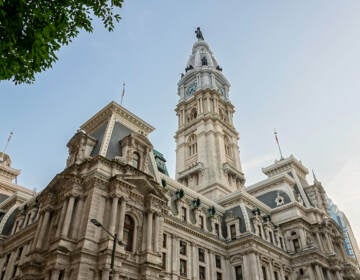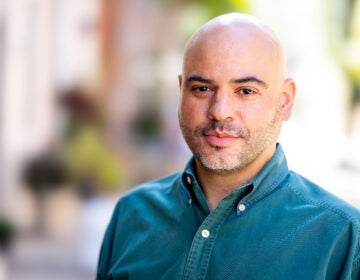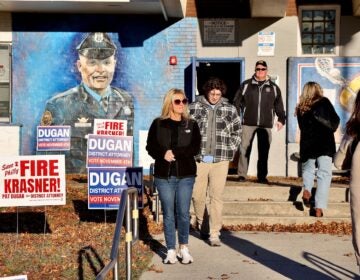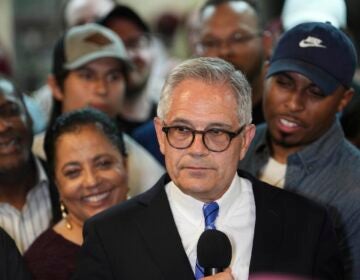16% of Philadelphians are disabled. Here’s where mayoral candidates stand on disability issues, and how advocates are feeling
From affordable housing to agency in voting, candidates and citizens tackled access — what it means, where it isn’t, and how it impacts the civic process.
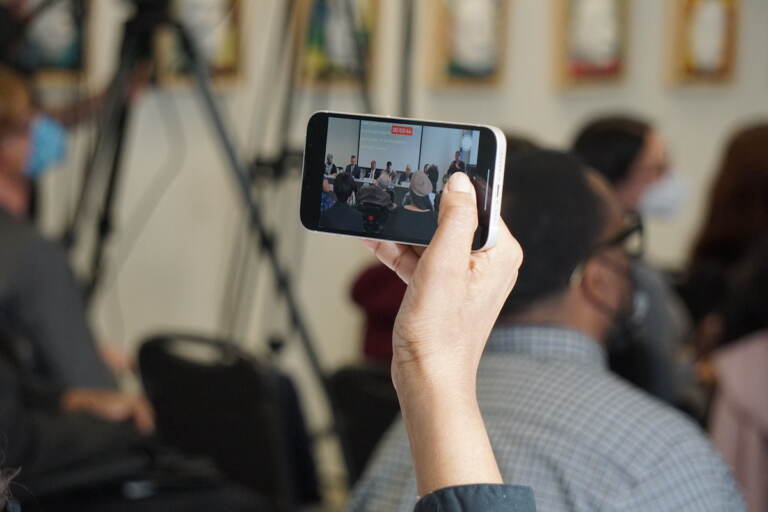
An audience member films as candidates for Philadelphia's 100th Mayor answer questions from the disabled community. (Sam Searles/WHYY)
What questions do you have about the 2023 elections? What major issues do you want candidates to address? Let us know.
This story is a part of the Every Voice, Every Vote series.
Philadelphia is home to approximately 250,000 people with disabilities, or about 16% of the population.
As Philadelphia’s 100th mayoral election approaches, some in Philadelphia’s disabled community are preparing to vote, an often time-consuming and laborious process. After a potentially frustrating lack of accessibility to both campaign events and literature, getting to the polls or filling out a mail-in ballot can also pose challenges.
Jule Ann Lieberman works with TechOWL (Technology Our Whole Lives), an assistive device education program that’s part of Temple University. She’s advised many Greater Philadelphia leaders on how to make all parts of voting easier to access. Liberman said that intentionality is the key to success.
“During the last presidential election, for example, one of the candidates’ websites was completely accessible for somebody using a screen reader. So as I’d navigate through the menus and it would [speak] to me. The other candidates’ was not accessible. Those things are taken sometimes as an afterthought, but good design allows it to be included from the beginning.”
Lieberman says the disabled community can fall victim to misinformation if campaign or voting information is not well adapted. “Campaign information heavily relies on using information that, you would hope, would be unbiased on the internet, but without having that accessibility access to get the information independently, [we] would then be required to ask for assistance by a trusted friend, perhaps, or family member to read that information.”
Agency at the voting booth is important too; Lieberman says she can remember when her elementary-school-aged son had to read a ballot to her. Some electronic voting systems have progressed to add audio, visual, and haptic assistance.
Getting to the polls, or anywhere, can be dangerous without safer and accessible streets, spaces that comply with the Americans with Disabilities Act, and affordable housing options.
Disability Pride PA partnered with REVUP (Register, Education, Vote, Use Your Power) Philly to host a mayoral town hall on Disability in April. Republican mayoral candidate David Oh was joined by Democratic mayoral candidates Jeff Brown, Jimmy DeLeon, and Rebecca Rhynhart. Helen Gym sent political director Leigh Owens as a representative.
ADA compliance and affordable accessible housing were major issues. In just under two hours, candidates answered questions in front of a small in-person gathering in the Liberty Resources center, which was also live streamed.
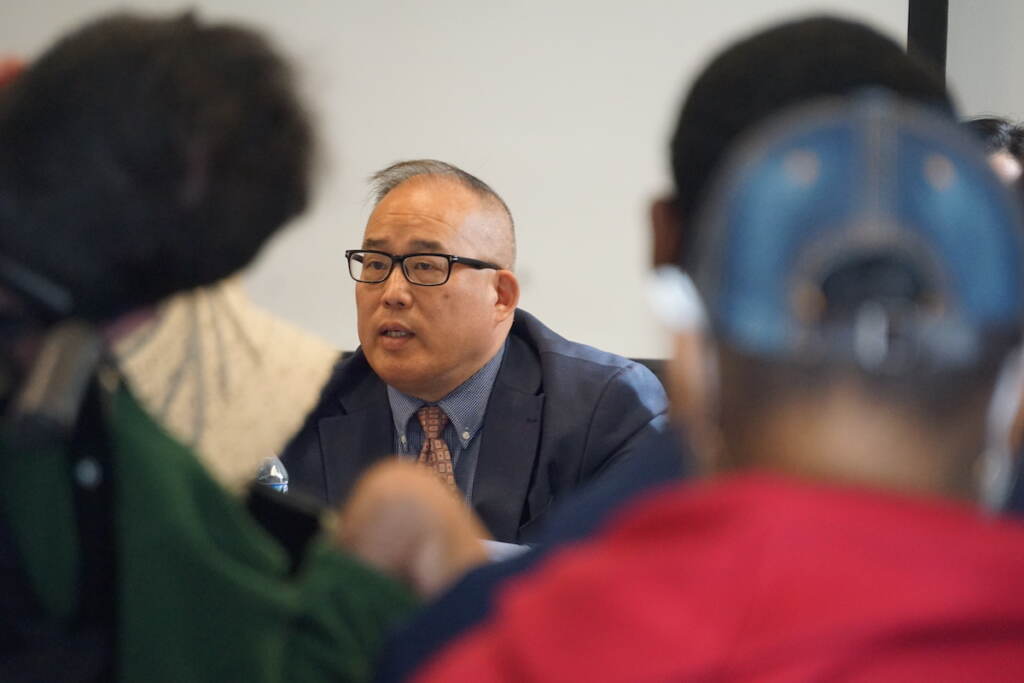
Doris Thomas, a disabled U.S. Army veteran, said money was top of mind. “I think that the city should be doing more to fund the Office of Disabilities,” she said. “I see that there’s plenty of housing development and apartment buildings being developed around the city. But the issue is accessibility and affordability. So, unless there’s policies that are incorporated [such as] if you want to build 200 homes, I’m hoping that maybe 75 of those homes are going to be accessible and affordable.”
Former City Councilmember David Oh stated that updates to the older areas of the city, especially, will be difficult. “I think the reality in Philadelphia is we’re a historic city [and] we’re an old city,” he said. “Actually making those changes is very challenging. We have to do what is required by law first, and then we have to prioritize the greatest need for all.”
Jeff Brown criticized what he called an “underfunding” of Philadelphia’s Office of Disabilities. “This is a place where people come and expect accessibility and assistance… that team should really be at almost every major decision to make sure that people that don’t deal with disabilities understand people that do… I don’t see that today.”
Activist Charles Horton was shot and left paralyzed. He asked candidates what they would do to support and protect newly disabled Philadelphians. Rebecca Rhynhart plans a multi-faceted approach. “Strategies [include] group violence intervention, cure violence, cognitive behavioral therapy, [and] focusing on those most likely to shoot or be shot, offering them a way out of that lifestyle with consequences if they don’t take it,” said the former city controller.
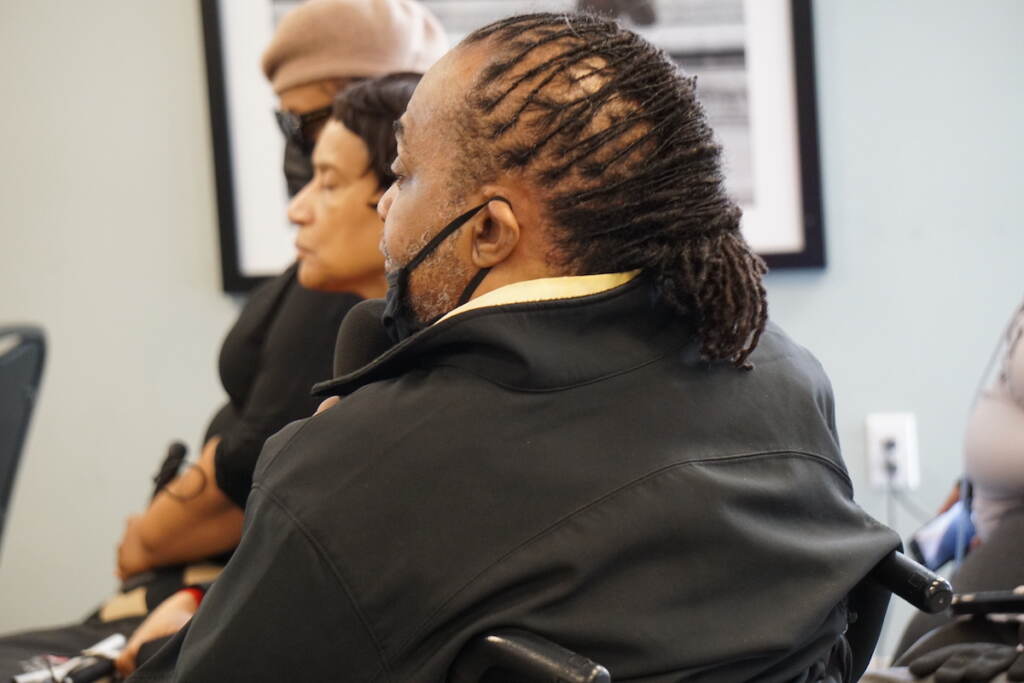
City planners, said former Judge Jimmy DeLeon, should work on new adaptive developments. “There’s 42,000 units in the city that are vacant,” he said. “We need to take at least one third to one half of those units and develop them into affordable housing [including] affordable housing for the disabled… you will eventually have, within the first term of me as mayor, 50% of the housing for accessible, affordable housing for the disabled.”
Helen Gym’s representative, Leigh Owens, cited a 2017 bill in which Gym had made rules around keeping sidewalks safe and maintained. “When she introduced the bill there were very few if any protections for pedestrians… The bill represented one of the first steps in guaranteeing sidewalk safety and accessibility for every pedestrian. As mayor she would continue that work.”
Charles Horton, who runs a support group for fellow gunshot victims who use wheelchairs, had mixed reviews of the forum, as did the audience streaming the event online. “Some of [the candidates] had some things that were valid and some things that we didn’t really know, and some candidates showed that they were totally out of touch with the community,” Horton said. “The language and terminologies that were used are outdated and it just was kind of derogatory.”
Candidates who didn’t attend left some people feeling disappointed, according to Horton. “What does that say about them wanting to be a part of our community when we are 16% of the community… you’re missing a larger block of your constituency that you need to represent. You didn’t care enough to even show up here.”
Jule Ann Lieberman says she’s excited by new voting options for people with disabilities. She especially hopes more candidates will intentionally involve the disabled community in their campaigns, and wants to make it easier to connect people to resources. “I encourage anyone with a disability, no matter what kind, sensory or physical or cognitive, to not let this opportunity pass to have your voices known. Because if you don’t let the people know that are going to be making these laws and regulations aware of what your needs are and what your choices are, then our progress is going to be halted.”
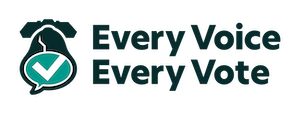 This story is a part of Every Voice, Every Vote, a collaborative project managed by The Lenfest Institute for Journalism. Lead support is provided by the William Penn Foundation with additional funding from The Lenfest Institute, Peter and Judy Leone, the John S. and James L. Knight Foundation, Harriet and Larry Weiss, and the Wyncote Foundation, among others. Learn more about the project and view a full list of supporters here.
This story is a part of Every Voice, Every Vote, a collaborative project managed by The Lenfest Institute for Journalism. Lead support is provided by the William Penn Foundation with additional funding from The Lenfest Institute, Peter and Judy Leone, the John S. and James L. Knight Foundation, Harriet and Larry Weiss, and the Wyncote Foundation, among others. Learn more about the project and view a full list of supporters here.

Get daily updates from WHYY News!
WHYY is your source for fact-based, in-depth journalism and information. As a nonprofit organization, we rely on financial support from readers like you. Please give today.


